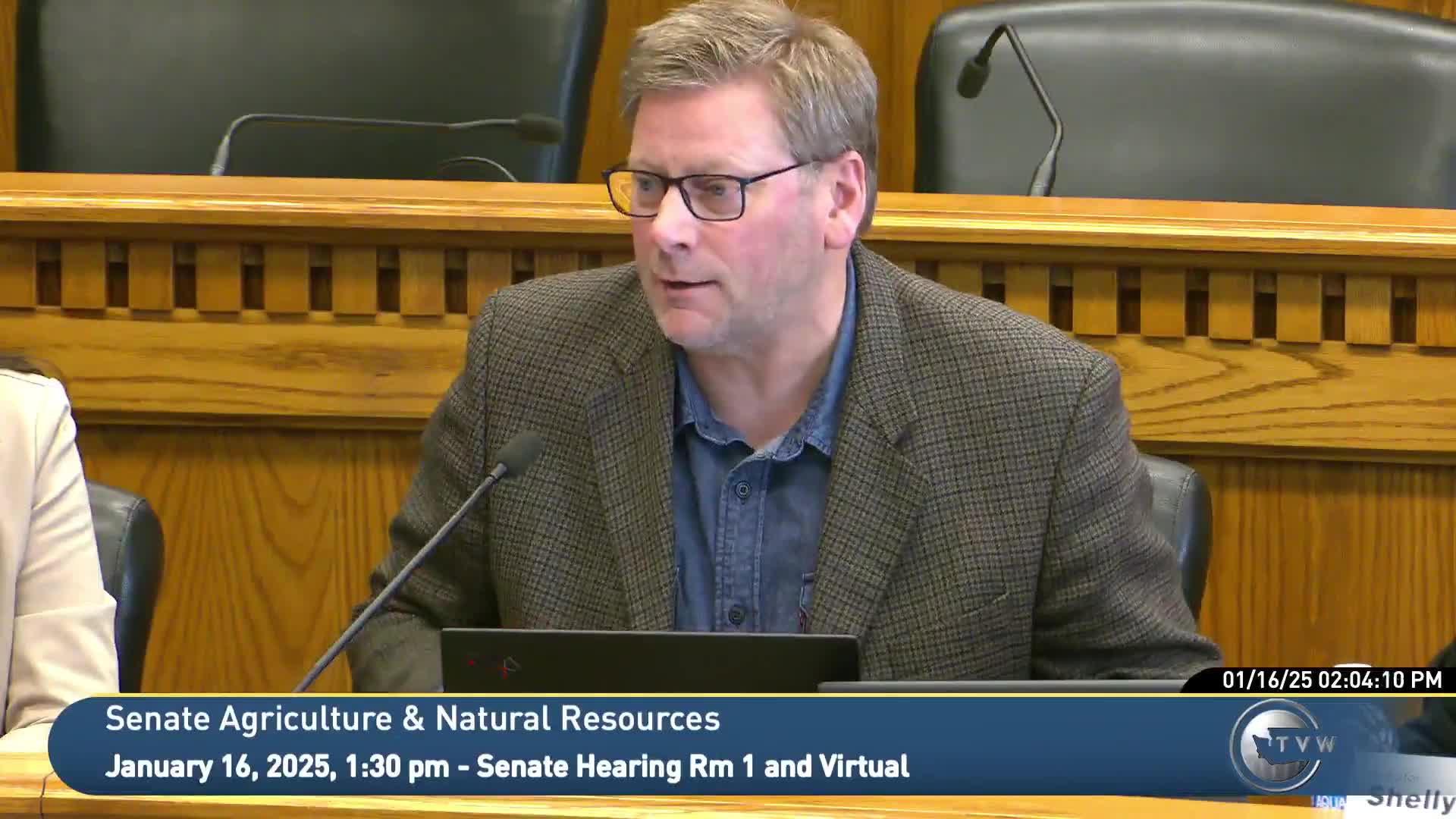Bill would require state agencies and legislature to assess agricultural impacts of major actions
Get AI-powered insights, summaries, and transcripts
Subscribe
Summary
Senate Bill 5117 would require state legislative proposals and agency actions that affect agriculture to include standardized agricultural‑impact assessments, a fiscal‑note process for agricultural regulatory costs, and public lists of significant agency actions by Aug. 1, 2025.
Senate Bill 5117, heard Jan. 16 by the Senate Agriculture, Water, Natural Resources & Parks Committee, would require state decision‑makers to incorporate agricultural‑impact assessments and standardized methodologies when planning or taking actions that affect the agricultural economy.
Committee staff described three main elements: (1) decision‑making procedures — state branches would work with the Department of Agriculture and the Conservation Commission to develop processes that account for presently unquantified values and use interdisciplinary approaches incorporating natural and social sciences; (2) fiscal transparency — the Office of Financial Management (OFM) would develop a fiscal‑note process for proposed legislation that increases or decreases regulatory costs for agriculture; and (3) agency lists and assessments — agencies must publish lists of significant actions and perform agricultural economic assessments for listed items, with those lists published by Aug. 1, 2025, in the Washington State Register and on agency websites.
Staff said a preliminary fiscal estimate shows roughly $3,000,000 in costs in the 2025–2027 biennium, though some agencies returned indeterminate estimates and a full fiscal note was pending. Sponsor Senator Mazzal framed the bill as a response to accelerating farm losses and a suite of policies she said have created pressures on agricultural operations in Washington. “Unless the state of Washington makes a concerted effort to not lose more agriculture … agriculture as we know it in the state of Washington is gonna be done,” Mazzal said.
Pam Lewison, ag research director at the Washington Policy Center, testified in support, citing USDA data that state farm numbers have declined and arguing that clearer regulatory cost information would help preserve production and jobs tied to agriculture.
Staff opened and closed the public hearing. Committee members asked staff to clarify missing agency estimates and to follow up on how consolidation versus farmland loss shows up in the data.
The committee did not vote on the bill during the Jan. 16 hearing.
